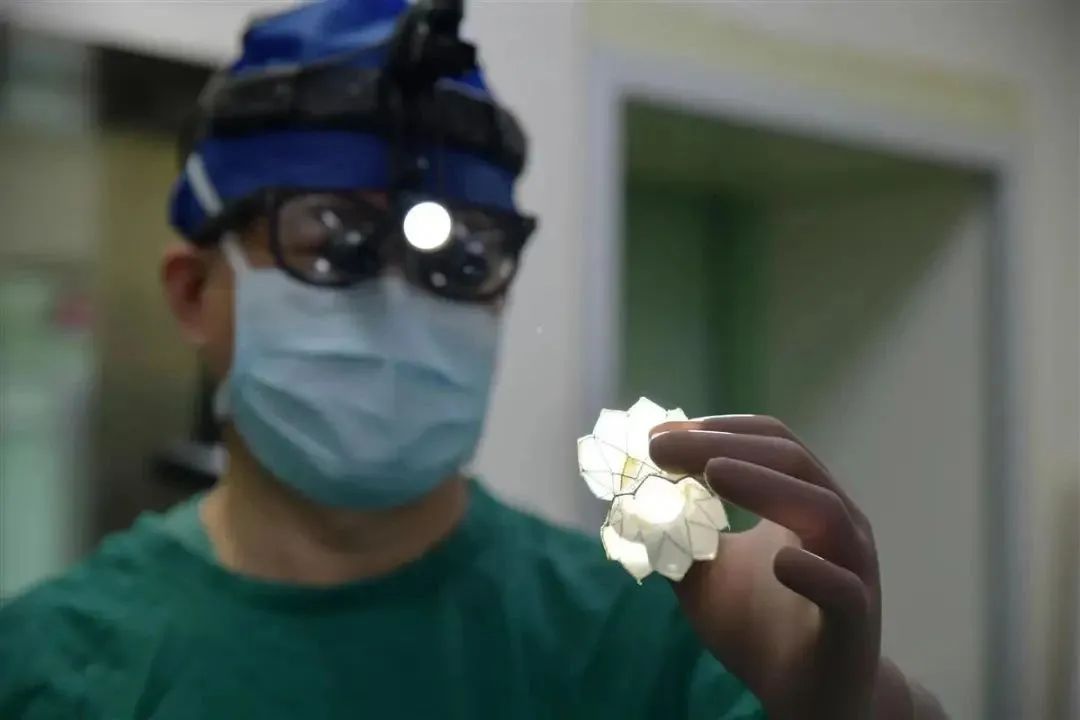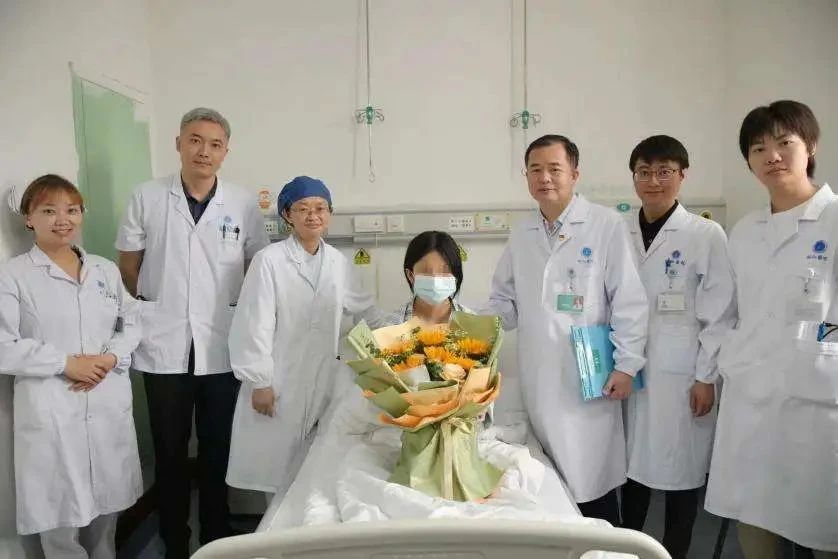On May 29, Professor Dong Nanguo successfully implanted a self-developed new type of cellularized pulmonary valve by using the right ventricular outflow tract as the main puncture point of access through a multidisciplinary team of cardiac surgery, ultrasound, anesthesiology, and operating room, with no regurgitation or perivalvular leakage of the pulmonary valve, and the valve replacement process took only 5 minutes.
On December 7, a 13-year-old congenital heart disease patient who received a new valve material to "mend the heart" returned to the hospital for review, and the results showed a good recovery, which is also the first international case of successful implementation of a new type of cellularization of the pulmonary valve replacement.

On December 7, Yueyue (a pseudonym), the world's first 13-year-old congenital heart disease patient to receive a new type of valve material to "mend her heart," returned to the Union Hospital of Huazhong University of Science and Technology (hereinafter referred to as: Wuhan Union Medical College Hospital) for a review, and is recovering well. As the first person to undergo the new cytosolic pulmonary valve replacement, Yuey's recovery is of great significance. Because this valve is a new type of cellularized valve developed independently by Prof. Dong Nanguo's team in the Department of Cardiovascular Surgery of Wuhan Union Medical College Hospital over a period of more than 20 years, it breaks through the durability problems of traditional biologic valves, and will bring a great blessing to patients, especially young patients.
Heart valve disease is a serious threat to human health, with up to 200 million patients worldwide, and the number of heart valve surgeries in China has been growing rapidly in recent years. Valve replacement is one of the main treatments for heart valve disease, but there are certain drawbacks to both the use of mechanical valves and existing biologic valve replacements. The use of mechanical valves is prone to thrombosis, meaning patients need long-term anticoagulation. The world's leading bioprosthetic valves suffer from a lack of durability, failing on average in 10-15 years and requiring patients to undergo another heart surgery. The few choices of valve materials for children and their inability to grow have been an unsolved problem in the international cardiovascular field for half a century.
Professor Dong Nanguo began his research on heart valve substitutes in 1999 and set up the Heart Valve Research Laboratory at the Union Hospital. 2003 was the first time in the world that he put forward the new theory of "cellularization of biomaterials to improve durability", which has been published in the National Key Research and Development Program of China, the National Natural Science Foundation of China, and the 12th Five-Year Plan of the People's Republic of China, Under the funding of National Key Research and Development Program, National Natural Science Foundation of China Key Project, "12th Five-Year Plan" Science and Technology Support Program, "863" Program and other national major/key projects, he has focused on the cellularization of valve materials for more than 20 years, combining the modification of decellularized valve materials, biochemical cross-linking technology, the theory of stem cell recruitment and differentiation, and the bionic technology of tissue engineering. By combining the modification of decellularized valve materials, biochemical cross-linking technology, stem cell recruitment and differentiation theory, and tissue engineering bionic technology, we have successfully developed the first cytocellular valve substitute with excellent biomechanical properties and self-growth and remodeling ability.

"The new cellularized valve has excellent biomechanical properties, and after implantation the autologous cells will grow inside the valve material with tissue remodeling and repair ability, which is not easy to calcification and decay, which is conducive to the restoration of pulmonary valve function in children." Prof. Dong Nanguo introduced.Considering the young age of Yueyue and the inappropriateness of the existing clinical biologic and mechanical valves, Professor Dong Nanguo's team decided to perform a transcatheter novel cytochemical pulmonary valve replacement after a detailed case study and evaluation.
On May 29th, more than ten medical staffs from the multidisciplinary teams of cardiac surgery, ultrasound, anesthesiology, and operating room worked together to protect Yue Yue. Professor Dong Nanguo used the right ventricular outflow tract as the main puncture point to insert the new cellularized pulmonary valve, which resembles a lotus flower, into Yue Yue's pulmonary artery through a thin interventional wire. After installation, the implanted valve unfolded in the child's body, and there was no regurgitation or perivalvular leakage of the pulmonary valve, and the valve replacement process took only 5 minutes. The patient recovered well after the operation, and a review of the cardiac ultrasound showed that the artificial pulmonary valve functioned well, the right heart was smaller than before the operation, and the heart function improved significantly. It is understood that since this year, Union Hospital has carried out seven cases of new cellularized valve implantation.
The new cellularized valve replacement subverts the existing biological valve preparation theory and process system, significantly improves the durability of the valve, and is expected to realize the fundamental change of biomaterials from inert replacement to active regeneration in the future, and to promote the iterative updating of the global clinical application of bioprosthetic valves.


